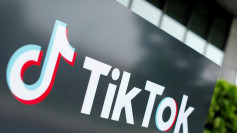In a surprising move that has left automakers and customers uncertain about the future of Tesla's electric vehicle (EV) charging network, CEO Elon Musk abruptly decided to lay off the employees who ran the company's Supercharger business.
The decision, which included the dismissal of the head of the business, Rebecca Tinucci, and most or all of the staff that operated and maintained the system, according to two former employees and multiple postings on LinkedIn, has raised questions about the future of the network and Tesla's commitment to expanding it.
Despite the layoffs, General Motors, Ford, and other automakers that struck deals last year to give customers access to the Tesla Supercharger network said they are not changing their plans for now. These deals were hailed by U.S. President Joe Biden and opened the door for Tesla to receive federal subsidies to expand the reach of its North American Charging Standard (NACS) system.
In response to the news, Musk stated on X (formerly Twitter) that Tesla still plans to expand the Supercharger network, "just at a slower pace for new locations and more focus on 100% uptime and expansion of existing locations." This statement has left some industry executives and analysts speculating that Musk could have disbanded the existing Supercharger organization to build a leaner and less expensive team to run the operations.
However, Musk's recent focus on opportunities in artificial intelligence, robotics, and autonomous robotaxis, as evident from his comments during a call with analysts earlier this month, has raised concerns about the future of the Supercharger network. "In this layoff, nothing is off the table," said Dan Ives, an analyst at Wedbush Securities. "Musk is trying to send a signal internally that the difficulty that Tesla is going through, they're going to have to make tough decisions. ... It shows there is serious cost focus."
The layoffs come at a time when Tesla is facing lower first-quarter profits and its first quarterly revenue decline since 2021. Despite a recent surge in its stock price, Tesla shares are still down about 26% for the year. In China, the company's second-biggest market, Tesla has more than 1,350 Supercharger stations, according to a list on its website.
Some analysts believe that with sales of Tesla's EVs falling and profit margins under increasing pressure, Musk could be cutting Supercharger network spending to conserve cash for other projects with more growth potential. "Tesla is looking to right size its (capital spending) and operating expenses over the next couple of years as the company is in a slower growth phase," said Seth Goldstein, an analyst at Morningstar.
While more traditional automakers might hang on to a business that promised steady revenue and near-continuous data exchanges with customers, Musk could be taking a Silicon Valley entrepreneur's view that charging is a legacy business that could be streamlined or even divested. "My guess is that now that the industry has adopted the NACS standard, he views Supercharging less as a strategic moat and more as a cost center," said KC Boyce, a vice president at data analytics firm Escalent.
The Tesla Supercharger network could have significant value if Musk wanted to sell it, analysts said. Rival U.S. charging networks have struggled with reliability problems and do not have the scale or prime locations that Tesla has locked in. Seven large automakers, including Mercedes, GM, Stellantis, Honda, BMW, and Hyundai-Kia, last year formed a joint venture called Ionna to develop a fast-charging network to compete with the Tesla Supercharger network.






